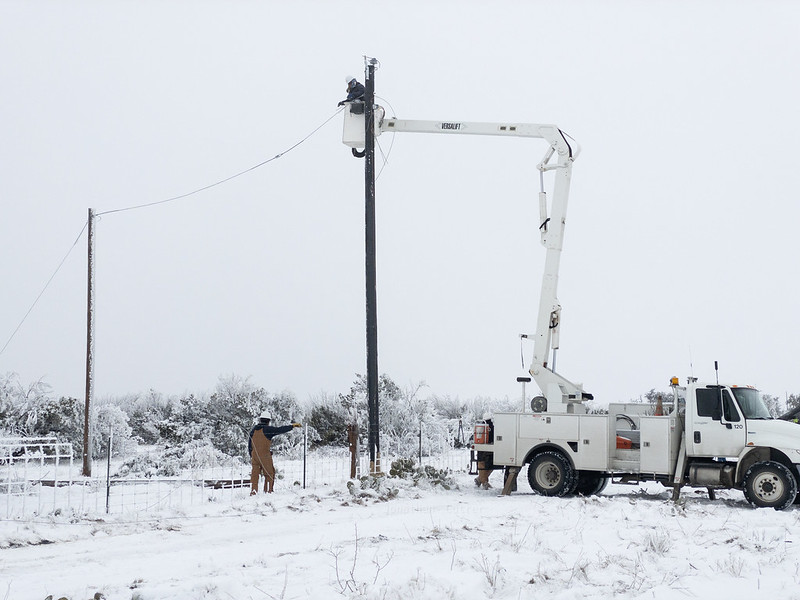Historic low temperatures and winter storms struck Texas starting on Feb. 13, leaving millions without power and heating.
According to the National Weather Service and CNN, nearly 154 million citizens in the United States were under some form of a winter weather alert. These severe weather warnings sparked a declaration of emergency in seven states: Kansas, Kentucky, Oklahoma, Alabama, Oregon, Mississippi, and Texas.
“The winter conditions in these seven states, despite being a weather phenomenon, has caused many citizens to suffer as they have no form of heat to stay warm. It is astonishing to see what is happening in Texas as it is known to be a warm state, but now, millions of people are left without power and no form of heat in temperatures below 30 degrees Fahrenheit,” said Nadia Herrera-Set, a junior.
According to CNN, on Feb. 15, more than 2.5 million people were without power as the entire state of Texas was below freezing. Many locations such as Dallas, Austin, Lubbock, San Antonio, and Corpus Christi reported record low temperatures.
“The temperatures in Texas are astonishing. It is crazy to think about how it should usually be 60 degrees there, but now many places are experiencing temperatures below freezing. I feel awful for residents of Texas because the freezing temperatures cause no power, no heat, and also a lot of damage to houses as pipes break,” said Lucas McLaren, a junior.
The freezing temperatures have pushed water supplies to the brink as many residents’ pipes have either broken or leaked. According to USA Today, water expands as it freezes, causing a lot of pressure on plastic or metal pipes which causes them to break. Many pipes are not fitted with material to deal with frozen water because it is a very uncommon occurrence in Texas.
“In my opinion, my family and I were fortunate in this storm. The only problem we had was that one of our pipes burst and the water was leaking in our attic,” said Kirti Moteka, a resident in Plano, Texas.
Many residents were also under boil water advisories, which informed residents to boil their water because house pipes could be contaminated.
“The boil water advisory adds trouble on top of issues that many people are facing. The freezing temperatures are freezing oil, which is needed for residents to boil water. There is no power, so no microwaves can help them either. They are in a terrible situation,” Herrera-Set said.
Due to freezing conditions, access to power has been a severe problem for many residents in Texas.
The city of Galveston released a statement saying, “Residents and businesses across Galveston are without power as the state responds to an energy crisis. At this time, we estimate 90-95 percent of Galveston residents are without power.”
Additionally, due to the icy road conditions and the stay-at-home orders that many cities put into place, residents also struggled for food. Many residents were unable to go out and get groceries, and even if they could, many grocery stores were empty due to the food trucks’ inability to drive with the dangerous road conditions.
“The lack of food is probably the most alarming issue in these storms. Not only do residents have to deal with the damage caused by the broken pipes or the struggle for heat, but they must also figure out how to get food in a time like this, which is extremely alarming and sad,” McLaren said.
Things keep getting worse as some scientists say that these storms will become more frequent due to climate change.
According to Vox, one group of researchers believe that Arctic warming will increase the chances of frigid polar air from coming south, leading to more extended periods of extreme cold in the near future.
“Texan infrastructure is not ready for the snow at all. Texas would have to reorganize its power grids and adapt its fossil fuel power plants and wind farms. Most importantly, Texan homes don’t have the insulation that’s needed to survive these kinds of storms,” Moteka said.
As the storm calms, costly relief operations start in order to control the damage.
Rep. Alexandria Ocasio-Cortez started a relief fund for Texas on Feb. 18, and three days later, she stated that they had raised $5 million.
“I think others could donate money to small businesses or families that have damaged homes or stores because that is what will truly help,” Moteka said.












